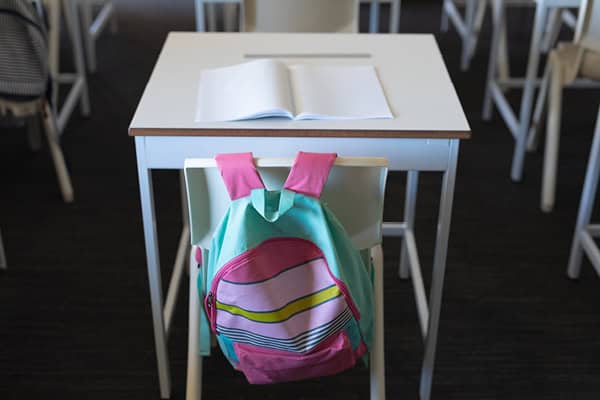In February, Dartmouth College economist David Blanchflower released a working paper that used survey evidence to show a pronounced increase in sadness and hopelessness over the past 15 years affecting people between the ages of 14 and 24, as reported in The 74. That trend mirrored a similar and dramatic rise in the time that young people, and especially young women, spent in front of a television, computer, smartphone or gaming console over the same years.
In 2022, more than 10 percent of young women said that they had a “bad mental health day” every day of the preceding month, a threefold uptick from the levels measured in 1993. The proportion of young women absorbing four or more hours of screen time each day climbed from 8 percent in 2003 to 61 percent in 2022.
Blanchflower says in an interview the statistics are too obvious, and too dangerous, to ignore.
Freefalling indicators of mental health for teenagers and young adults, including increased hospitalizations for self-harm and greater suicidality, led Blanchflower to check the latest data from benchmark surveys such as the Centers for Disease Control’s Behavioral Risk Factor Surveillance System. People in their late teens and early 20s are now the most likely to report experiencing despair, with people in their late 60s and early 70s substantially less apt to say the same.
COVID has often been cited as a major force playing on the anxieties of young people. But the survey responses strongly indicate that the pandemic accelerated pre-existing trends, Blanchflower and his co-authors note. The sense of displacement brought on by online instruction in the early 2020s may have only intensified the same alienation triggered by online interaction in the 2010s.
Educators, parents and politicians are increasingly open to considering restrictions on how children can engage with the internet and social media.
In Florida, Republican Gov. Ron DeSantis recently signed a law banning social media accounts for children younger than 14 and requiring 14- and 15-year-olds to obtain parental permission.
Deborah Heitner, author of “Growing Up in Public,” said social media companies should curb their most “manipulative” features, including location sharing, which allows users to see where their friends are at a given time. She also believes full-on bans risk curtailing some of the constructive ways adolescents use technology, such as finding outlets for their stress and connections with new friends.
Factors that may contribute to rising rates of depression and dismay, according to Blanchflower: the after-effects of the Great Recession — a significant majority of the young women feeling despair between 2020 and 2022 also reported having suffered one or more adverse child experiences, such as cohabitating with a mentally ill person, living through their parents’ divorce or being physically or sexually abused.
Blanchflower says all the existing evidence argued in favor of enacting hard limits to the exposure of young people to social media and smartphones. Acting decisively could save lives, he says.
The 74






